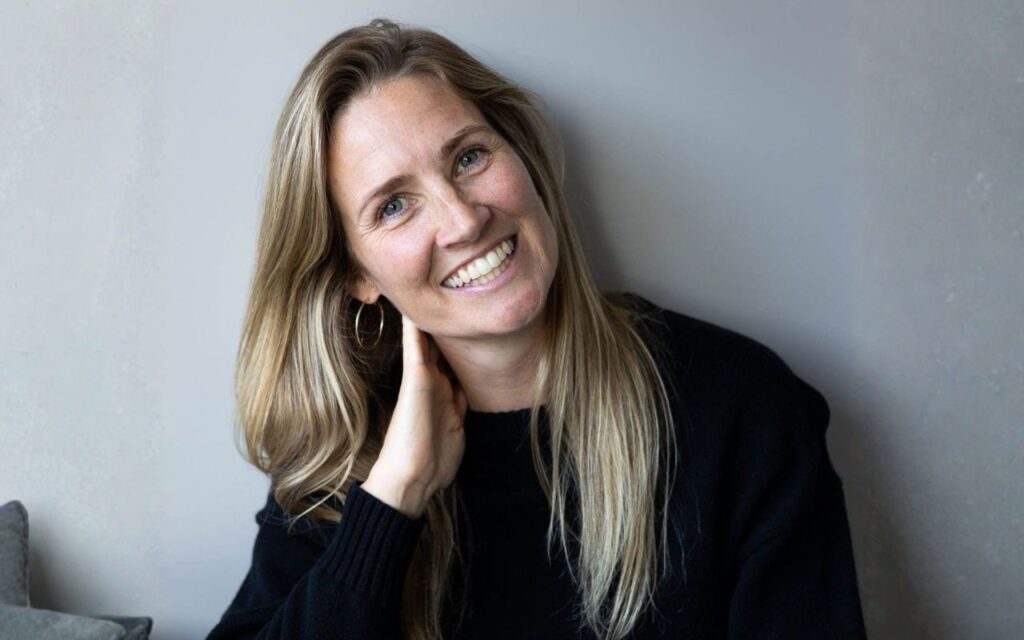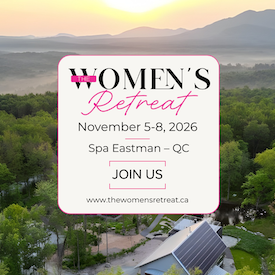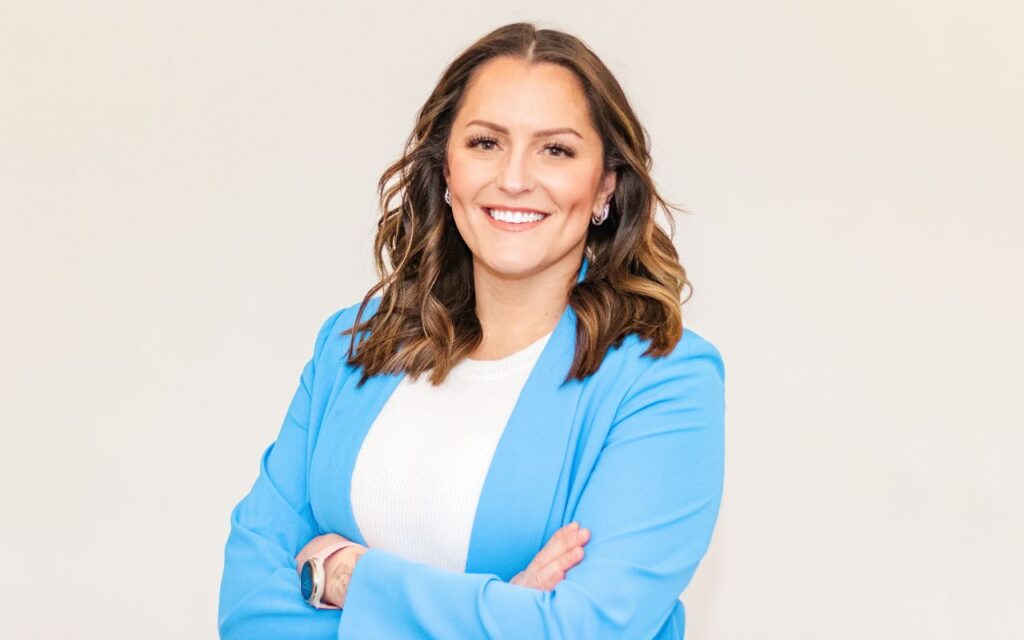
Catherine Clark: Can you take us back to the beginning of your journey? Was professional women’s sports even on your radar when you were a little girl?
Sinead King: Growing up, I absolutely loved sports. I have two older brothers, so I naturally gravitated toward anything active – especially football. I was fortunate to play for a few soccer academies in the UK, including Chelsea, Southampton, and Reading. But by the time I was around 16, there really wasn’t a future in women’s sports. My dad said, “You’re a smart kid – you’re not going to make a career out of this. You should go to university instead.”
So while I loved playing, I never saw a pathway or a career in it. I went to university and ended up working in banking for 10 years, but I always wanted to find a way to bring my personal passion for sport back into my career. I can share more about how that happened – but growing up, I never saw sport as a place for a career. It was just something I did on weekends.
Jennifer Stewart: How does it feel now, looking around at the evolution of women in sports – not just the attention, but the real investment and momentum behind it?
Sinead King: So proud. So excited.
I think because I came from the generation – much like yourselves – where we didn’t see a future, we have such deep appreciation for how much it’s changed. There was a time when people didn’t believe this could happen. And now, we’re living it. Every woman – and so many men who’ve supported us – can say, “We were always here. This was always viable. This was always going to create economic value.”
To be living it and seeing the success of it – and knowing we’re just at the beginning – is incredible. This is only the precipice of its potential. I’m excited, motivated, and really proud.
Catherine Clark: I think about something my mom used to tell me – she was one of six kids, five of them girls, and when she said she wanted to play hockey, her dad pointed to the TV and said, “How many girls do you see out there?” It had such an impact on her. Now, our daughters never have to hear that – they can dream big because they see women represented. How do you think about that, both in the day-to-day work of moving things forward and the big-picture opportunities ahead?
Sinead King: That story actually reminds me of my own. I had a season ticket for a London men’s club when I was a kid – there were about 20,000 fans at every game, and maybe 100 of us were women or girls. I wanted to belong so badly that I’d almost dismiss women’s sport. I thought the only way to be “legitimized” was to be one of the boys.
Now, when I see girls in the stands at Rise games, getting autographs and saying, “I want to play for Rise one day,” it’s powerful. The impact that has on how they see themselves – their self-worth, their place in society, their potential – it’s everything.
What’s even more incredible is that this new generation of girls doesn’t think twice about it. They’re not surprised to belong here. They think, “Of course I’m here. Of course I can do this.” And that mindset shift is huge.
Jennifer Stewart: And as you said, we’re still at the beginning of this movement. There’s proof of audience, of excitement – but how do we keep the momentum going and take it to the next level?
Sinead King: It’s so important that people recognize we haven’t reached the end point yet – this is just the start. Fans need to come to games, watch on TV, talk about it, buy tickets and merch – that’s how we validate that this is real and sustainable.
We also need patience. We’re playing catch-up – about 50 years of it. The men’s professional sports ecosystem has had decades of investment: in broadcasts, sponsorships, stadiums, grassroots development, coaching, refereeing – all of it. We’re just building that now.
The more we invest today, the faster we’ll grow, and the better the product will be in five or ten years. It’s not enough to say, “I support women’s sports.” We need to show up for it.
Catherine Clark: What’s one piece of advice you received early in your life or career – good or bad – that completely shifted your mindset or approach?
Sinead King: Say yes – and believe you can do the role just as well as anyone else.
That’s something I’ve carried with me, especially when it comes to imposter syndrome. Feeling fear and doing it anyway. I’ve gone for roles I wasn’t the most qualified for, but I knew I could learn and grow into them.
And beyond that – having mentors and a strong network has been everything. Surrounding yourself with people who believe in you, who’ll open doors, and who give you a safe space to share ideas or failures – that’s invaluable.
Jennifer Stewart: Have you personally faced imposter syndrome?
Sinead King: Yes – especially during my time at HSBC. The company had about a quarter of a million employees worldwide, and I was the Global Head of Operations, managing a team of about 1,500 people across 40 countries.
I’d spend months in China, three years in India, and lead teams in London. Most of my employees were older than me, and I was only 25. I’d think, “How am I qualified to manage their performance or decide someone’s bonus?”
But the people around me believed in me. My team valued what I brought. I learned that I didn’t need to be the technical expert – I needed to listen, lead, and build a diverse team that complemented my gaps.
Still, you can imagine what a room of executive bankers looked like – and at 25, I didn’t quite fit the mold.
Catherine Clark: You’re leading a team, growing a club, and advocating for women in sports – what do you do for you? How do you recharge and avoid burnout?
Sinead King: Unsurprisingly, I love sports! I still play soccer once a week on a co-ed team. I love that flow state where you stop thinking and just play.
Nature is another big one for me – it’s the reason I stayed in Vancouver. I love being in the mountains or among trees. Camping and hiking really fill my cup. I used to completely switch off for two or three days, but that’s a bit harder now.
And reading – I read every night. It’s relaxing, and it’s also a great way to connect with my girlfriends when we’re talking about our latest book.
Jennifer Stewart: What would you say to a young woman who wants to follow in your footsteps? How would you recommend she get started in the sports industry?
Sinead King: I’d say this – I might not be the best example of a traditional path, because mine was anything but linear. People often say, “Figure out what you want and map out your path,” but that wasn’t my story.
I spent 10 years in banking, then quit for a year to travel. After that, I joined a nonprofit startup because I wanted to experience something outside the corporate world – something more purpose-driven. I’d always had this itch to work in sports, but there wasn’t a clear way in, and I didn’t have a set plan.
I’m not saying that’s the way to do it, but here’s what I learned: find a career that truly ignites you. I used to roll my eyes at that cliché – “Do what you love and you’ll never work a day in your life.” But honestly? It’s true. I’ve never worked harder, never been more stressed or had bigger deliverables – yet I don’t feel like I’m working, because I love what I do.
So my advice would be: Work out what fuels your passion, even if you don’t know exactly what that looks like right now – I didn’t until I got here. Figure out your core skills, and put yourself in environments where you can grow them, but also be challenged. Learn what you’re not good at, too.
And don’t be afraid to change. You don’t have to have it all figured out. It’s okay to take risks, to pivot, to realize something isn’t right for you – as long as you’re doing it with intention and purpose.







